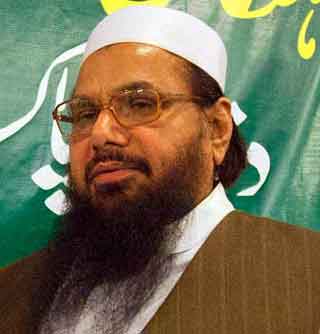 The first essential step of national security policy is to understand the basis and substance of the likely adversary’s aims and objectives. History offers vital clues on the same.
The first essential step of national security policy is to understand the basis and substance of the likely adversary’s aims and objectives. History offers vital clues on the same.
Without much ado, it can be safely asserted that Indian decision-makers for last 70 years have failed to understand this fundamental issue. The consequences of this failure are that from the 1948 Cease fire in Kashmir, taking the issue to the UN, the Tashkent agreement of January 1966 or the diplomatic hara-kiri by Indira Gandhi at Shimla conference in 1972, Lahore bus trip by PM Vajpayee in 1999 and latest attempts by Prime Minister Narendra Modi at peace parleys with Pakistan, India has continued its quest for peace.
Peace talks with Pakistan are like accepting a dinner invitation from cannibals and hoping to return alive.
This author and most Indian professional military men will admit that Pakistan armed forces are an efficient and tactically proficient organization. An effective killing machine armed with modern weapons. Despite its superiority in numbers, military conquest of Pakistan is beyond India’s means.
With the nuclear dimension, an all-out war will certainly result in major damage for India, though Pakistan may well cease to exist. There is no tangible gain in this course of action. I will not be divulging any national secret if one is to assert that neither the political nor the military leadership of India has any such plans. The converse is also equally true.
Pakistan lacks military strength to ever dream of conquest of India, whatever be the wet dreams of likes of Hafeez Sayeed of LeT (Lashkar e Toiba) or other proponent’s of ‘Gazwa E Hind’ or conquest of India as promised in a Hadith. But unlike India, Pakistan military believes that India is too divided and will disintegrate. Pakistan mistakes ‘din and noise’ of democracy for internal weakness. Right from Aaub Khan in 1950s, this has been an article of faith for Pak military.
This still leaves the issue of annexing Kashmir. Irrespective of morality or otherwise, the material fact is that no amount of internal unrest in Kashmir can loosen India’s grip so long as the rest of the country continues to support the Kashmir policy. Be it Vietnam, liberation of Bangladesh or takeover of Afghanistan from Najibullah by Taliban, the final blow needed the intervention by regular armed forces.
During the 1990 Kashmir crisis, the then CIA Chief Robert Gates had visited Pakistan and told the Pak military there that the Americans have carried out hundreds of computer simulations of Indo-Pak war and in each and every scenario the end result was Pak defeat. Pakistan has tried to wrest Kashmir from India in 1947, 1965 and latest in 1999 (the Kargil skirmish) and failed. Yet the professional army of Pakistan and its military establishment continues on the path of conflict with India, despite knowing that victory is not achievable!
History offers a clue to this apparent contradiction. In their deepest convictions and mindset, Pakistan considers itself to be an heir to the Delhi Sultanates and Mughal Empire. Ina broad brush view of Middle Ages, the army was at the centre of Muslim rule in North India. The rulers ruled with help of their military might and were never concerned with seeking public support. With the notable exception of two rulers, Akbar and Sher Shah Suri who carried out some works of public benefit, the rest were never concerned with welfare of their subjects.
Constant warfare, either in Afghanistan or campaigns of conquest of South India marks their rule. There was never a period when the armies were not fighting. Chanakya has cynically defined peace as an interlude between two wars, but in case of the Muslim rule in India, peace was not even an interlude. Is it any wonder that their 800 years rule in parts of India produced no scientific or economic advance or any work of public welfare?
The state of Pakistan seems to be faithfully following this model. In the last 20 years or so, as external conflict has been of less intensity, Pakistan has been busy in killing its own people. Fighter aircraft, artillery and tanks have been regularly used in campaigns in North and South Waziristan. In these wars over 80,000 Pakistanis have been killed (figures till 2015) including 5400 Soldiers, nearly equal to Pakistani soldiers killed in 1971 Indo Pak war.
Pakistan separated from India on the basic issue of the Muslim elites need to have political power and fear of majority rule. In this Jinnah harnessed religion by creating a false scare of ‘Islam in danger’. Pakistan was created by the Muslim elites for the elites. Despite Jinnah’s secular pretensions, Pakistan was destined to be a religion based state as the genie of religious fanaticism once unleashed refused to go back into the bottle! The last 70 years of Pakistan’s history shows that it is faithfully following the Delhi Sultanate model of governance. Peace has not been an interlude in70 years of Pakistani history.
Once India understands the permanent nature of Pakistani hostility and its logic, we can work out our strategies to deal with it. Peace with Pakistan is not possible due to structural and ideological reasons. The best course for India is to wait out the implosion that is bound to take place sooner than later. We have to be prepared to ensure that the fallings debris from a collapsing state do not damage us.





Understandable realism, probably penned before BrahMos test via Sukhoi. However, we should then assist the IMPLOSION and be on guard for any FALLOUT!